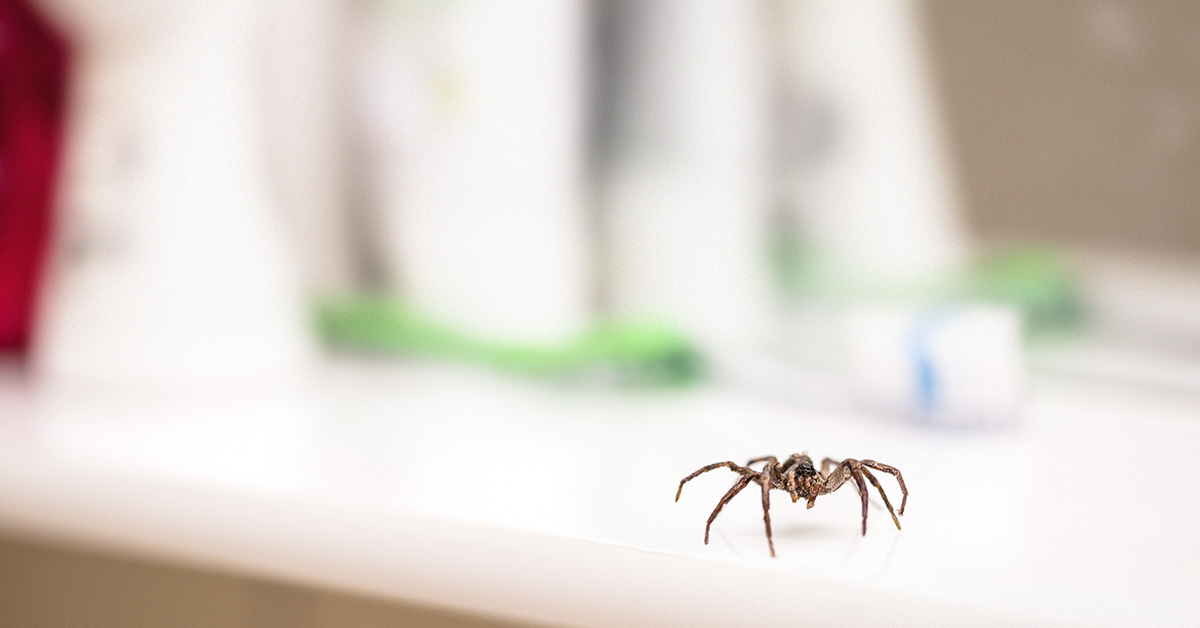Many people don’t like spiders, to put it mildly. The spotting of a spider can cause chaos as everyone tries to kill it. But put down the shoe and bug spray for a moment. Entomologists advise people to never kill a spider in their home because these creatures are “an important part of nature and our indoor ecosystem — as well as being fellow organisms in their own right.” In fact, their existence may benefit you over time.
Never Kill a Spider in Your Home
For the most part, the spiders appearing in your home are not dangerous or aggressive. Some don’t even want to be inside; they came in by accident and would rather go outdoors. But whether they are passing through or looking for a quiet corner to spin a web, spiders can provide an incredible service to their human landlords. They prey on pests, which may include other spiders.
Dr. Matthew Bertone, professor in the Department of Entomology and Plant Pathology at North Carolina State University, and his colleagues conducted a survey of 50 households in his home state. Every house they visited contained spiders, typically cobweb spiders and cellar spiders. Both of these types build webs to catch prey, and cellar spiders might leave their webs to hunt other spiders. They are generally able to eat anything their webs capture, and that often includes pests like mosquitoes, bed bugs, ants, and clothing-eating moths. So in exchange for real-estate in a basement corner, spiders provide free pest control.
Bertone admits that it’s valid to fear spiders. He explains that almost all of them are venomous but the vast majority’s venom is too weak to affect people. Some species’ fangs aren’t even capable of piercing human skin so it’s no surprise that spider bites almost never kill people. “Even entomologists themselves can fall prey to arachnophobia,” he writes on The Conversation. “I know a few spider researchers who overcame their fear by observing and working with these fascinating creatures. If they can do it, so can you!” [1]
Creepy But Misunderstood
In fact, spider bites are very uncommon. Overall, spiders do not go after humans; they’d rather avoid them since we are more of a threat to them than they are to us. The species people should worry about — such as widow spiders and recluses — bite people rarely, and even then their bites are unlikely to lead to serious health problems.
“There’s a misperception of spiders,” said Dr. Brittany Campbell, entomologist with the National Pest Management Association. “There are just a handful of species that can really hurt people, but because of this fear that has really been perpetuated in general, the general public fears spiders more than is probably necessary.” [2]
Biological Sciences Associate Professor Anne Danielson-Francois overcame a fear of spiders thanks to her parents, who taught her to learn about the creatures before hating them. Today, her career involves studying spiders almost daily. Many of her research students overcame their own fear of spiders. “It’s just like anything else. The more you learn and interact with them, the less afraid you are,” she said. She also teaches how to identify spider species. “People go to the doctor and the Emergency Room with a ‘spider bite.’ Most are harmless or actually caused by insects and not spiders. The experiences my students have will help them identify medically important spider species and what treatment is needed, if any.” [3]
Live and Let Live
But if all the reassurances in the world couldn’t convince you to live with a spider, you should still never kill it. Instead, try to capture it and bring it outside; it’s a solution that both parties can feel happy about. But if you don’t mind having an eight-legged roommate, Bertone assures you that it’s normal to have spiders around. You may have spiders hiding somewhere you haven’t discovered yet. Either way, try to live and let live the next time you see an arachnid spinning a web in a corner of your house.
But Campbell warns against capturing spiders to bring into your home to kill other bugs. The invitation should only extend as far as the occasional arachnid already living in your house. If you have more than several insects around, you might want to find and eliminate the source. As in, you should look for bits of rotting food, dark or wet spaces, or too many cracks that let pests inside. If you think you’re finding more bugs than what should be considered normal, bring in a professional to assess the situation.
Danielson-Francois recommends the phone app Seek by iNaturalist and the website BugGuide.net to help identify the different spiders in your home. “Once you know what you are looking at, its behaviors and benefits, spiders aren’t so scary,” she said. “Some are really fascinating. You might find yourself wanting to learn more. Look up the dancing peacock spider — you won’t be disappointed.”
Sources
- “Should I kill spiders in my home? An entomologist explains why not to.” The Conversation. Matt Bertone. May 16, 2018
- “Why I Never Kill Spiders (and Why Pros Say That’s Totally OK).” Apartment Therapy. Audrey Carleton. November 20, 2019
- “Spiders are all over your home and in your yard. Associate Professor Anne Danielson-Francois, a renowned spider expert, says that’s a good thing. Hear her out.” UM Dearborn. Sarah Tuxbury. October 27, 2021

